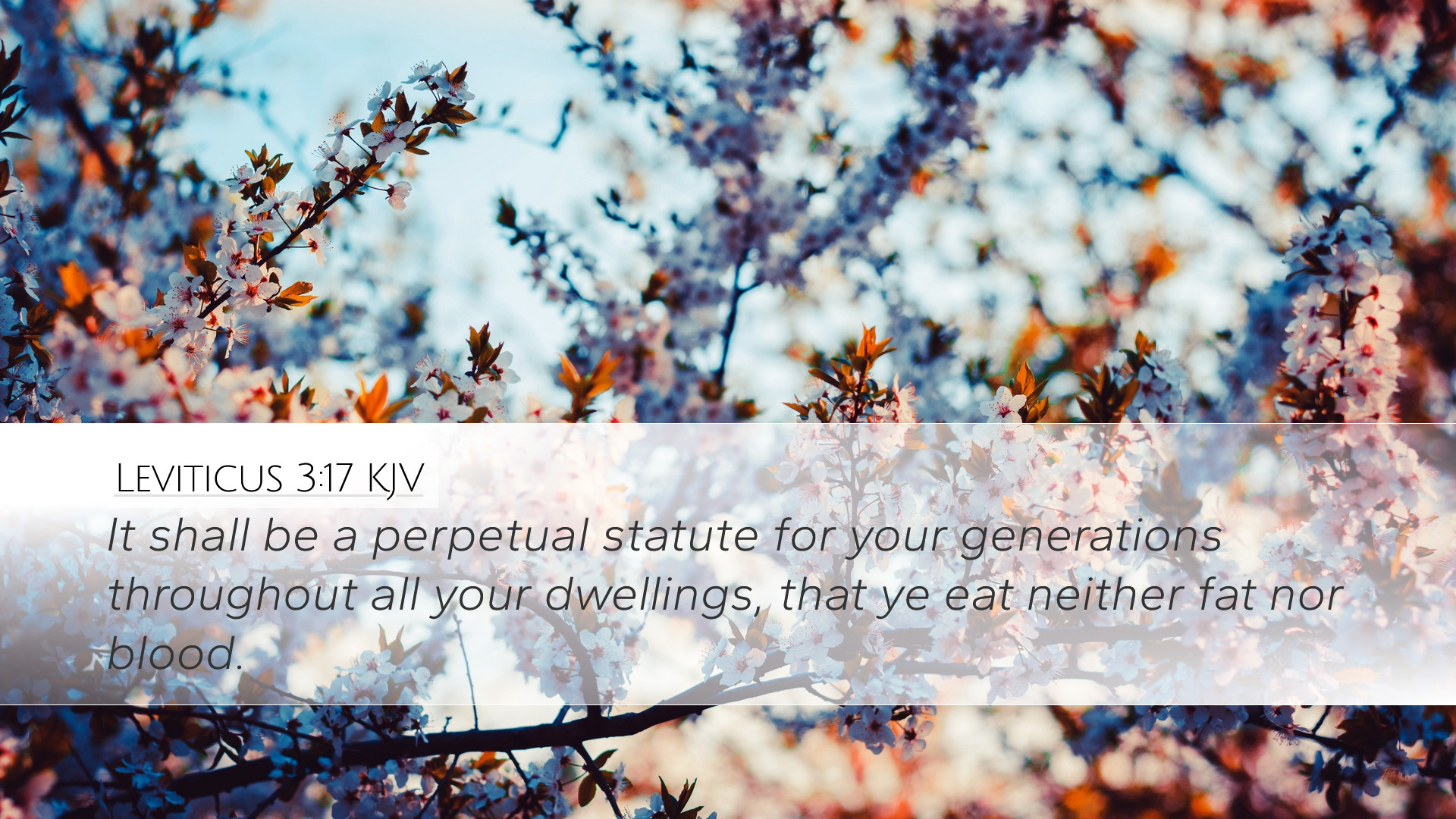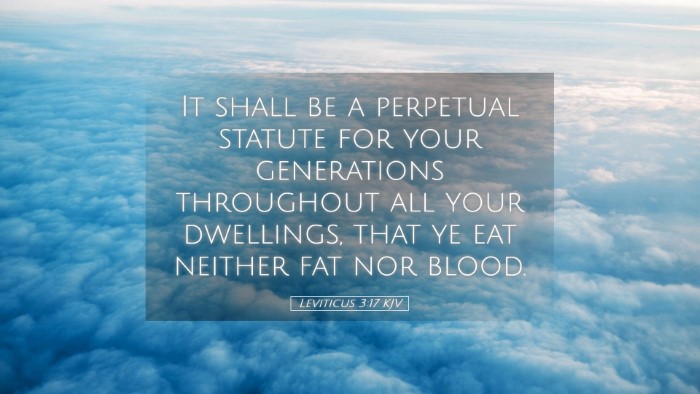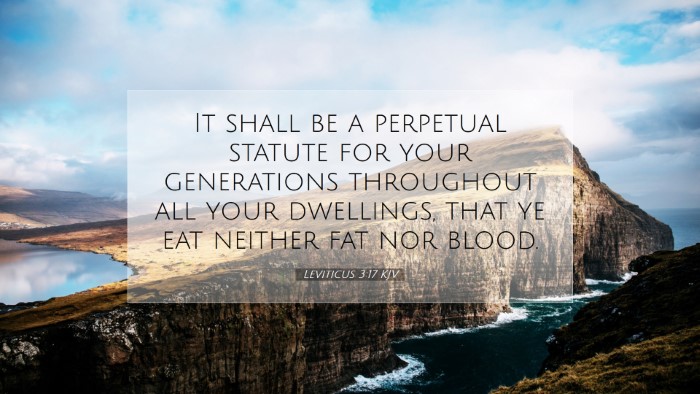Commentary on Leviticus 3:17
Bible Verse: Leviticus 3:17 - "It shall be a perpetual statute for your generations throughout all your dwellings, that you eat neither fat nor blood."
Introduction
The laws outlined in Leviticus, particularly concerning sacrifices and dietary practices, carry significant theological weight. Leviticus 3:17 encapsulates critical principles regarding holiness, obedience, and the sacredness of life. Understanding this verse requires a multi-faceted approach as elucidated by several esteemed commentators.
Insights from Matthew Henry
Matthew Henry emphasizes that the prohibition of fat and blood reflects God's intention to maintain sanctity in His covenant community. He notes that:
- The symbolism of Fat: Fat was considered the best part of the animal and thus, its dedication to God signifies the offering of the best to Him. This act of sacrifice illustrates a believer's commitment and acknowledgment of God's supreme sovereignty over all things.
- The significance of Blood: Blood symbolizes life, and its exclusion from consumption underscores the seriousness of life and death. Henry highlights that blood, as the life-source, belongs to God, reinforcing the idea that life is sacred and must not be taken lightly.
Henry also suggests that the instructions set forth in this verse are not merely for dietary concern but are deeply embedded in worship and reverence towards the Creator.
Insights from Albert Barnes
Albert Barnes elaborates on the socio-religious implications of this command in Leviticus 3:17. He notes:
- The Perpetual Statute: Barnes interprets "perpetual statute" as a divine ordinance meant to last through generations, illustrating God's unchanging nature and His will for His people. The laws set forth are not to be viewed as obsolete but rather as timeless instructions for living in right relationship with Him.
- Connection to the Sacrificial System: He draws connections between these dietary laws and the broader sacrificial system in Hebrew worship, asserting that they were meant to foster a sense of holiness and separation from pagan practices that often included blood consumption.
Barnes stresses that adherence to these laws was integral for Israel's identity as a holy nation, setting them apart from surrounding nations and aligning them with God's holiness.
Insights from Adam Clarke
Adam Clarke provides a detailed exploration of the text, focusing on both its practical and spiritual ramifications:
- Health and Purity: Clarke suggests that the prohibition against fat and blood serves not only a spiritual purpose but also a practical one. He argues that the consumption of blood and certain fats can lead to health issues, indicating God's concern for His people's well-being.
- Reverence for Life: He further emphasizes that avoiding blood signifies deep respect for life, aligning with the larger Biblical narrative where life is cherished and held sacred. This stance reflects God’s desire for humanity to appreciate the gravity of life and death.
- Continuity in Faith: Clarke also underscores the idea of continuity within faith traditions. He suggests that these statutes point towards the revelation of Christ, who fulfills the ultimate sacrificial role, hinting at a deeper theological significance that connects the Old Testament commandments with New Testament grace.
Theological Implications
The collective insights of these commentators illuminate several theological implications derived from Leviticus 3:17 that are pertinent to pastors, students, and scholars:
- Holiness and Community: The laws establish a framework for holiness that defines the life of the community. Obedience to God's statutes underscores a holy way of life, fostering unity and collective identity as God's chosen people.
- Worship and Sacrifice: The concepts of sacrifice and offering the best reflect a reciprocal relationship between God and His people, where worship is synonymous with the spirit of giving and surrender.
- Respect for Creation: The sanctity of blood emphasizes a divine relationship with all living beings, advocating for stewardship of creation—a theme prevalent throughout Scripture.
- Foreshadowing Christ: The avoidance of blood and fat can be seen as a prelude to the New Testament revelations, where Christ becomes the ultimate sacrifice, thus transforming sacrificial worship into a profound celebration of grace and redemption.
Concluding Thoughts
In conclusion, Leviticus 3:17 invites a comprehensive understanding of divine statutes that govern worship, identity, and relationship with God. Drawing from the insights of Matthew Henry, Albert Barnes, and Adam Clarke fosters a rich theological tapestry that both informs and inspires. It challenges believers to explore the deeper meanings behind dietary laws and encourages adherence to holiness and respect for life as reflections of God’s character and His call for His people.


